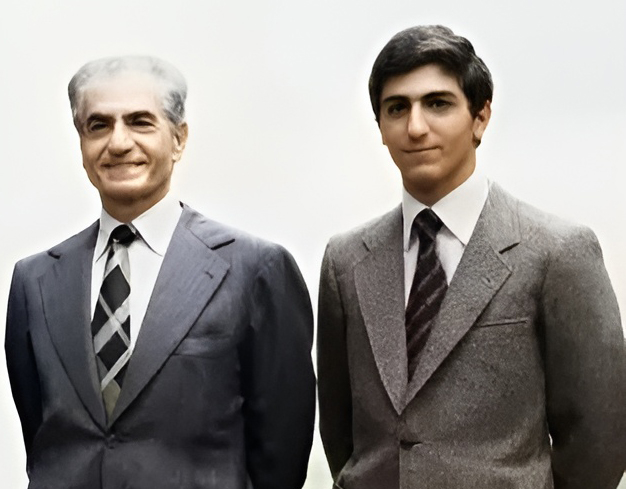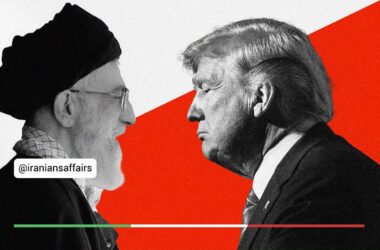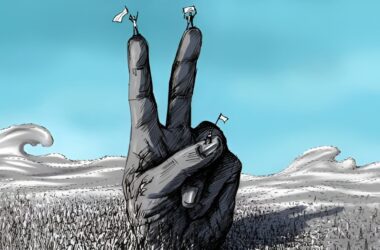By Pantea Garshasbi
December 12, 1946, stands as a historic day that showcased the ability and resolve of a national leader in safeguarding the unity and territorial integrity of Iran. In his youth and during one of the most critical moments in modern Iranian history, Mohammad Reza Shah Pahlavi demonstrated courage and prudence to thwart the Soviet Union’s separatist plots and reintegrate Azerbaijan into Iran. This event is more than a historical milestone; it offers lessons for the future—a future that, amid widespread protests and the public demand for the overthrow of the Islamic Republic, underscores the critical need for national leadership and figures like Crown Prince Reza Pahlavi.
The Azerbaijan Crisis: A Threat to Iran’s Territorial Integrity
After the occupation of Iran during World War II, the Soviet Union sought to sever Azerbaijan from Iran by supporting the Democratic Party of Azerbaijan, led by Ja’far Pishevari. Soviet military and political backing, coupled with the weakness of the central government, brought Iran to the brink of disintegration. However, through diplomatic acumen and military resolve, Mohammad Reza Shah successfully foiled this plan.
This event highlighted how foreign forces have consistently targeted Iran’s national unity and the indispensability of strong leadership and public support in defending the country’s territorial integrity. The Shah not only safeguarded Azerbaijan but also sent a clear message to the world: Iran is indivisible.
From December 12 to Today: A Recurrent History in New Form
Iran today faces similar challenges. The Islamic Republic has not only failed to preserve national unity but has actively fueled divisions among ethnic groups through its discriminatory policies, paving the way for fragmentation and instability. From Kurdistan to Sistan, and from Khuzestan to Azerbaijan, systemic inequalities have deeply alienated Iran’s diverse ethnic communities.
In such circumstances, the need for a national leader capable of uniting Iran’s various ethnic groups around a shared Iranian identity becomes increasingly urgent. Crown Prince Reza Pahlavi, emphasizing territorial integrity, equal rights for all ethnic groups, and a vision based on freedom and democracy, embodies the role his father played on December 12, 1946.
Why Crown Prince Reza Pahlavi?
- A Symbol of Nationalism and Unity: Crown Prince Reza Pahlavi has consistently rejected separatism and ethnic factionalism, advocating instead for a unified Iranian identity. This makes him an ideal figure to guide the country through a transitional period.
- Support for Ethnic Groups: Unlike the Islamic Republic, which has pursued discriminatory policies against ethnic minorities, Reza Pahlavi is committed to equal rights for all Iranians. He has repeatedly stressed that Iran belongs to all its people.
- Diplomatic and Leadership Capabilities: Just as Mohammad Reza Shah combined diplomacy and military leadership to save Iran in 1946, Crown Prince Reza Pahlavi, with his international support and political influence, can pave the way for a brighter future for Iran.
The Need for National Leadership Against Separatism
The experience of December 12 demonstrated that without a strong national government and unified leadership, Iran is vulnerable to both internal and external threats. Today, Reza Pahlavi can play a similar role on a broader scale:
- Uniting Ethnic Groups: Following the end of the Islamic Republic, Iran’s various ethnic groups will require trust-building and legal equality. Reza Pahlavi’s nationalist discourse and plans for a democratic and equitable future can unite Iranians around the common goal of rebuilding a free and united Iran. In his speeches, he has repeatedly emphasized that no ethnic group should be marginalized and that the rights of all Iranians must be guaranteed within a democratic framework.
Historical Lessons: The Risks of Lacking a Strong National Government
Had Mohammad Reza Shah Pahlavi not stood firm against the Soviet Union and the Democratic Party of Azerbaijan on December 12, 1946, today’s Iran would look drastically different. The secession of Azerbaijan could have triggered a chain reaction of disintegration, leading to the collapse of Iran. History shows that the absence of a strong national government invites risks such as separatism, foreign intervention, and weakness against adversaries.
Today, similar threats persist due to the Islamic Republic’s fundamental flaws and discriminatory policies. In the absence of a national leader and a clear plan for rebuilding, separatism and instability could easily fill the vacuum left by the current regime. Reza Pahlavi’s emphasis on Iran’s territorial integrity and his nationalist vision make him a formidable barrier against these threats.
The End of the Islamic Republic and the Dawn of a New Era for Iran
Today, amid widespread protests across Iran and a collective demand for regime change, the people need a national leader who transcends factionalism and divisions, uniting all ethnic groups and social classes under one banner. Reza Pahlavi, respected by a significant portion of Iranian society, can play a pivotal role in this transition. He has repeatedly stated that he seeks no personal power but aims to establish a government that empowers the Iranian people to determine their own destiny freely.
Conclusion: December 12 as a Beacon for Iran’s Future
The anniversary of Azerbaijan’s liberation from occupation and secession serves as a reminder of the importance of national leadership and unity in preserving Iran. Just as Mohammad Reza Shah Pahlavi safeguarded Iran’s territorial integrity during its most critical moments, today, Reza Pahlavi can play a similar role in rescuing Iran from its current crises.
Iran today needs a strong, nationalist, and democratic government more than ever—one capable of preserving unity and territorial integrity while fulfilling the people’s demands for freedom and justice. With his experience, nationalist character, and diplomatic skills, Reza Pahlavi is well-positioned to lead this historic transition.
December 12 is not just a historical date but a lesson: when the people and their leaders unite, Iran becomes invincible.







